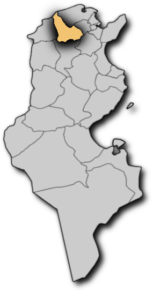Beja
Now we focus on the city of Beja. The name gives revelation of the geography and redemptive calling–it comes from an older, Lybic name “Vaga,” which refers to cows and waves, as in the waves made by the wind in the fields of wheat surrounding the city. This region boasts rich soil, thus the importance of agriculture. This is where much wheat is grown, cereal is processed, cheese is produced, and juicy honeydew melons are grown. There is also some fame attached to the rich butter pastries of the region—all food for kings.
Indeed, this was a self-governed city under Massinissa the Berber; even greater prosperity followed under Jugurtha (116-104BC), who resided here. After a time of obscurity, Septimus Severus, a Roman Emperor of Libyan birth, renewed its place of privilege and the city prospered until the Vandals ransacked it in the 5th Century. The Byzantine rulers restored it to its previous grandeur, only to be taken by the Muslim invasion in 847AD. During this invasion, a bloody slaughter laid waste to the city, and women and children were largely sold into slavery. The city was then repopulated by a branch from Banou Riah, who rebuilt the citadel. Later, Bedouins made the city of Beja their headquarters and, once again, agriculture and craftsmanship flourished. The rise and fall of glory seems to be a consistent cycle in the city’s history.
The city still boasts a citadel with Punic and Roman foundations, but the majority of what stands of the old city dates to Justinian, the Byzantine ruler. There are many remains of early churches found in the rural outskirts of the city, dating back to the Early Christian period. The main mosque found in the town center was built by the Fatimids in 944 over the ruins of the Basilica.
The mild climate of Beja has attracted a variety of people groups over the years—among them, Andalusian Moslems and Jews chased out of Spain, and Turks from the Bey’s courts seeking pleasant vacation surroundings. The city became famous as a place for Moslem theologians, mathematicians, mystics and philosophers.

Do not be deceived: God cannot be mocked. A man reaps what he sows. The one who sows to please his sinful nature, from that nature will reap destruction; the one who sows to please the Spirit, from the Spirit will reap eternal life. Let us not become weary in doing good, for at the proper time we will reap a harvest if we do not give up. Therefore, as we have opportunity, let us do good to all people, especially to those who belong to the family of believers (Galatians 6:7-10).
There is one known Christian family in this city. They have no contact or connection to the larger Body of Christ; your support and prayers for their well-being and growth to maturity in faith are truly needed. May they be restored to fellowship.
Another follower is known to have made a personal commitment to Christ but is reluctant to share this news with any other family members. Pray for the Holy Spirit to guide in this. Many people have received Bibles. May they be drawn to read them and may the Holy Spirit cause them to see the living Jesus as they read. There is a great deal of fear in those who are considering following Jesus. Pray for them as they face great challenges with family, friends and neighbors.

